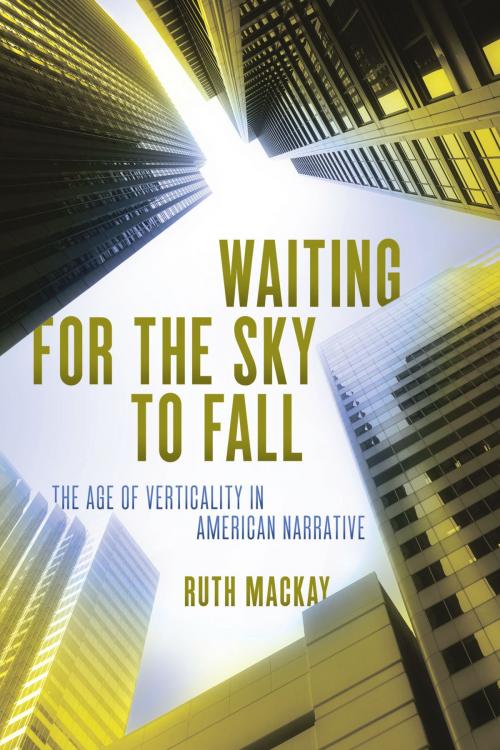Waiting for the Sky to Fall
The Age of Verticality in American Narrative
Fiction & Literature, Literary Theory & Criticism, American| Author: | Ruth Mackay | ISBN: | 9780814274163 |
| Publisher: | Ohio State University Press | Publication: | September 1, 2016 |
| Imprint: | Ohio State University Press | Language: | English |
| Author: | Ruth Mackay |
| ISBN: | 9780814274163 |
| Publisher: | Ohio State University Press |
| Publication: | September 1, 2016 |
| Imprint: | Ohio State University Press |
| Language: | English |
Waiting for the Sky to Fall: The Age of Verticality in American Narrative by Ruth Mackay traces the figures of flight, grievous falls, and collapsing towers, all of which haunt American narratives before and after 9/11. Mackay examines how these events prefigure 9/11, exploring the narrative residue left by the “end” of horizontal space—when settlers reached America’s Pacific Coast, leaving nowhere westward on the continent to go. She then continues into the aftermath of the fall of the Twin Towers. This period of time marks an era of verticality: an age that offers a transformed concept of the limits of space, entwined with a sense of anxiety and trepidation.
With this study, Mackay asks: In what oblique ways has verticality leaked into American narrative? Why do metaphors of up and down recur across the twentieth century? With close readings of Jonathan Safran Foer’s Extremely Loud and Incredibly Close, Winsor McCay’s comic strip Little Nemo in Slumberland, Upton Sinclair’s Oil! and its film rendering There Will Be Blood, Allen Ginsberg’s poetic dissections of the nuclear bomb, and Leslie Marmon Silko’s imagining of flight in Almanac of the Dead, this interdisciplinary study culminates with a discussion of Philippe Petit’s tightrope walk between the Twin Towers. Waiting for the Sky to Fall examines how vertical representation cleaves to, and often transforms the associations of, specific events that are physically and visually disorienting, disquieting, or even traumatic.
Waiting for the Sky to Fall: The Age of Verticality in American Narrative by Ruth Mackay traces the figures of flight, grievous falls, and collapsing towers, all of which haunt American narratives before and after 9/11. Mackay examines how these events prefigure 9/11, exploring the narrative residue left by the “end” of horizontal space—when settlers reached America’s Pacific Coast, leaving nowhere westward on the continent to go. She then continues into the aftermath of the fall of the Twin Towers. This period of time marks an era of verticality: an age that offers a transformed concept of the limits of space, entwined with a sense of anxiety and trepidation.
With this study, Mackay asks: In what oblique ways has verticality leaked into American narrative? Why do metaphors of up and down recur across the twentieth century? With close readings of Jonathan Safran Foer’s Extremely Loud and Incredibly Close, Winsor McCay’s comic strip Little Nemo in Slumberland, Upton Sinclair’s Oil! and its film rendering There Will Be Blood, Allen Ginsberg’s poetic dissections of the nuclear bomb, and Leslie Marmon Silko’s imagining of flight in Almanac of the Dead, this interdisciplinary study culminates with a discussion of Philippe Petit’s tightrope walk between the Twin Towers. Waiting for the Sky to Fall examines how vertical representation cleaves to, and often transforms the associations of, specific events that are physically and visually disorienting, disquieting, or even traumatic.















